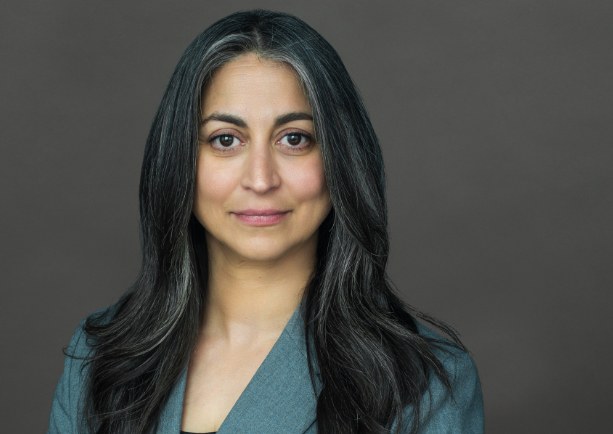
Anuja Pandey (she/her)
- Availability:
- Accepting New Clients
- Session Format:
- OnlinePhoneIn-Person
- Office Days:
- TuesdayWednesdayThursdayFriday
- Clientele:
- Adults (18+)
About
Emotional suffering begins in relationship (or in the lack of relationship). Healing, then, must also happen in relationship.
Self-help books, podcasts and other forms of psych-education can sometimes help us connect the dots on an intellectual level. They are a great resource and an encouraged adjunct to therapy. But nothing—absolutely nothing—takes the place of real-time relationship. Having your very specific uniqueness met by an other, having it responded to with compassion, is a powerful and often transformative experience.
It’s less important that you choose the therapist with the greatest number of credentials and more important to choose a therapist with whom you feel rapport. Therapy is not easy; there are many uncomfortable moments that we’d rather not visit. It’s the therapist’s job to encourage you to build the capacity to manage that discomfort and eventually face the difficult-but-not-impossible tasks that are necessary for your growth and healing. All within the contained safety of a responsible therapeutic relationship.
On that note, I encourage you to contact not one, but a few therapists whose profiles resonate with you to find the right fit.
With training in various modalities including psychodynamic psychotherapy, hypnotherapy, and cognitive behavioural therapy, my practice focuses on the relational aspects of the human experience. I use a body-centred, trauma-informed approach rooted in attachment theory to address the unconscious roots of emotional suffering.
The client-therapist relationship is fundamental to the process. It can help us identify repetitive patterns that have kept us stuck and have limited our ability to live more fully. Together we develop the capacity for radical and compassionate honesty, opening us up to new alternatives that better align with our authentic selves.
Sometimes I will pause you mid-sentence and narrate what I observe as you speak. This helps you become more aware of how your unconscious mind communicates.
Sometimes I will ask you to hold your thought and use it to “drop into” your body. This facilitates mind-body communication and allows trauma to be addressed safely.
Sometimes I will reference something you said earlier in the conversation. This may reveal inner conflict that contributes to your sense of unease or powerlessness.
Slowing things down in these ways helps you to witness the impact of your life experiences in a safe and healing manner. Our work together prioritizes you, as the person telling the story, over the story itself, helping you to restore the sense of agency and personal meaning that is your birthright.
My path to this profession began decades ago when I first became a parent. As I felt the gravity of my new responsibility, I realized that if I didn’t do something radically different my children would inherit my limitations and, in fact, those of my fore-parents. Parenting aspirations soon led to personal therapy and many years of self-study.
Slowly I witnessed myself living more boldly, less apologetically. I began to take my place in the world; allow myself to experience a fuller range of human emotion that was free of judgement, shame, or fear of loss. What began as a wish to end the legacy of inherited family trauma led me to become a psychodynamic therapist and a passionate advocate for personal freedom.
I have many interdisciplinary interests in the field of applied clinical psychology. Most recently I completed training as a psychodynamic psychotherapist (with a combined analytic and somatic style) from Toronto’s eminent Centre for Training in Psychotherapy—a rigorous 6-year training program. Prior to that, I completed training in hypnotherapy to the Master level at OHC and basic training in cognitive behavioural therapy at CAMH.
Soon to complete eye movement desensitization and reprocessing (EMDR) certification, my practice is built around a special interest in developmental, immigration, and intergenerational trauma. From an anti-oppressive stance I seek to welcome you as you are, however you identify. Together we will look to your inborn strengths so that your still-pained-parts get the support they need for growth, healing, and restored vitality.
Psychodynamic psychotherapy calls for an ongoing, weekly commitment to be optimally effective. Sessions run between 60 to 90 minutes in length, depending on the needs at hand.
I primarily work online with adult patients (18+) using a secure PHIPA-compliant video conferencing platform designed specifically for healthcare and mental health practice. When it’s therapeutically necessary, I also make arrangements to hold sessions via phone or in person.
To begin, we will meet for a complimentary, brief, virtual consultation during which we will assess whether this is a good match and if psychodynamic psychotherapy is appropriate in your particular case. If so, we will schedule our first set of appointments where we will spend a portion of the time discussing possible adjustments to session format, taking your history, and discussing the issues that brought you to therapy.
If you feel ready or if you’re not sure but want to explore safely, let’s talk! Brief complimentary consultations are available. You can find me at pandeytherapy@gmail.com.
Issues
- Anger
- Anxiety
- BIPOC/Racial Issues
- Body Image
- Career Dissatisfaction or Transition
- Depression
- Dreamwork and Dream Interpretation
- Existential Concerns
- Immigration and Newcomer Experiences
- Intergenerational Trauma
- Loneliness and Isolation
- Parenting and Co-Parenting
- Relationships
- Self-Destructive Patterns
- Self-Esteem
- Separation and Divorce
- Sleep Difficulties
- Stress
- Trauma